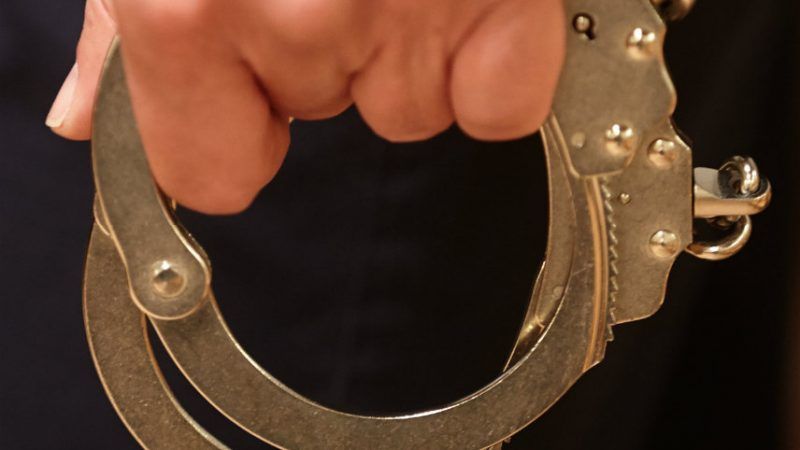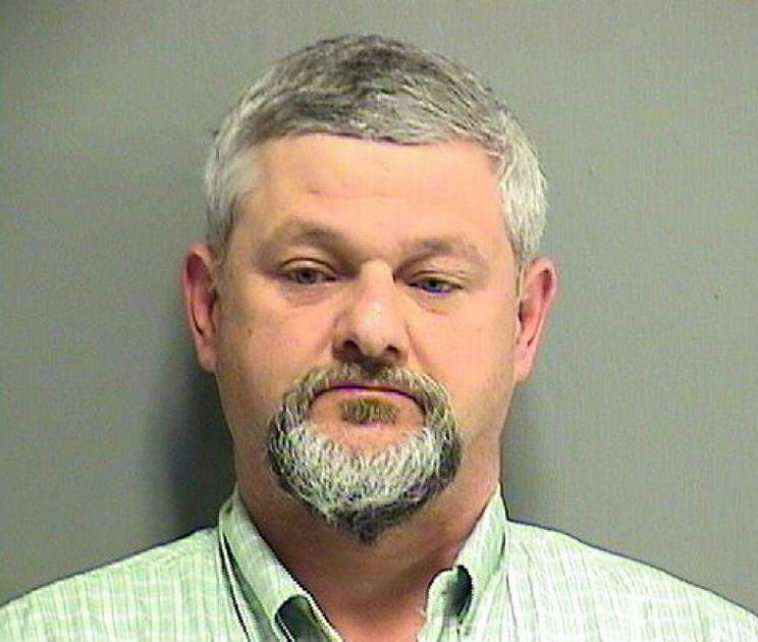DEA Agents Sold Opioids, Stole Cash, and Falsely Identified Drug Suspects, Say Feds
Seize the drugs. Sell the drugs. Arrest the buyers. Repeat.


Four former Drug Enforcement Administration (DEA) operatives face federal corruption and conspiracy charges after allegedly engaging in all sorts of shady behavior, from selling drugs themselves to lying under oath, falsifying records, falsely identifying drug suspects, accepting bribes, and stealing cash and other property from the people they arrested. In at least one instance, their behavior led to someone being wrongly imprisoned for more than two years.
The dirty drug warriors—special agent Chad Scott, with the DEA since 1997, and former task force officers Rodney Gemar, Karl Newman, and Johnny Domingue—worked with the DEA's New Orelans Division. Gemar and Newman also work for local law enforcement agencies.
In an indictment unsealed this week, Scott, Newman, and Gemar—a Hammond Police Department officer since 2004 and DEA Task Force Officer since 2009—are accused of seizing money and other property from those they arrested and then keeping it for themselves. (Notably, the feds do not frame this as theft from the suspects but as embezzling funds from the DEA.) This went on for at least seven years.
Scott is also accused of accepting $10,000 from a defendent in a federal criminal case in exchange for recommending that prosecutors seek a reduced sentence and, in another case, tampering with witness testimony.
Scott allegedly coerced Frederick Brown (a defendent in his own drug case) "to falsely testify that Jorge Perralta was present during drug transactions between Edwin Martinez and [Brown], when in fact Frederick Brown had never seen Jorge Perralta during his drug transactions with Edwin Martinez." Scott reportedly offered his own false testimony in the case as well.
The DEA agent claimed that it was Brown who initially brought up Perralta when talking about people who were around during deals and might be Martinez's supplier, referring to Perralta not by name but as "the little Mexican guy." Scott said that he showed Brown a photograph of Perralta on his phone, and that Brown confirmed this was the dude he had seen during drug deals.
An arrest warrant was issued, and Scott went to Houston to help police there arrest Perralta for conspiracy to distribute heroin and cocaine. Perralta's phone was seized, he was taken into custody, and—without even being allowed to contact his parents or girlfriend—he was whisked away to Louisiana. That was in March 2015.
After nearly two and a half years behnd bars, Perralta was released in August 2017 and all charges against him were dismissed.
Brown had never brought up Perralta on his own, say prosecutors in their indictment against Scott. And when shown a picture of Perralta, Brown said that he had never seen him.
Both Scott and Gemar were arrested on October 1 and released on bond the next day.
Newman and Domingue were arrested in 2016. According to federal prosecutors, Newman seized and sold thousands of dollars worth of cocaine and oxycodone. Some of these drugs he seized from a woman identified as R.G. "by means of actual and threatened force, violence, and fear of injury…to R.G.'s person and the persons of her family."
Domingue is accused only of falsifying records related to this illegal drug seizure. His trial is set February 2018.
Newman has agreed to plead guilty to one count of "conspiracy to convert property" and one count of using a gun in furtherance of a crime of violence, in exchange for prosecutors dropping the other charges against him. He faces fines of up to $500,000 and possible life in prison, with a mandatory minimum sentence of at least five years.


Show Comments (32)